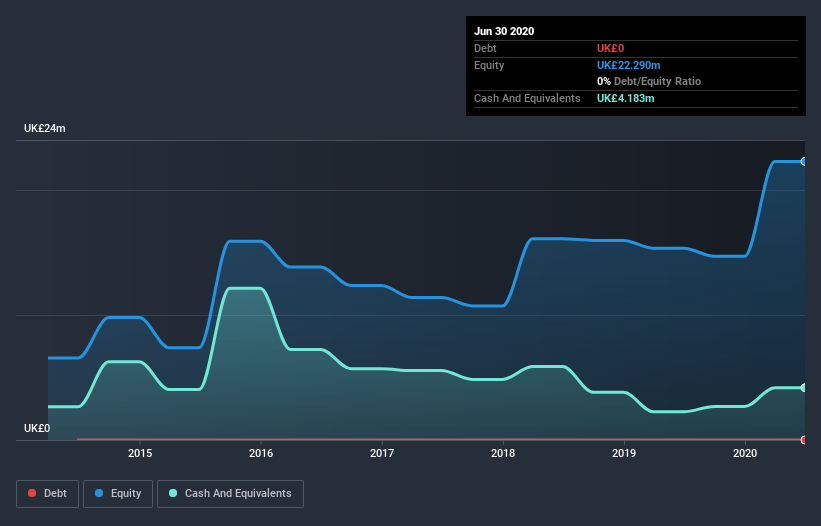Companies Like Bango (LON:BGO) Can Afford To Invest In Growth
Even when a business is losing money, it's possible for shareholders to make money if they buy a good business at the right price. Indeed, Bango (LON:BGO) stock is up 135% in the last year, providing strong gains for shareholders. But the harsh reality is that very many loss making companies burn through all their cash and go bankrupt.
Given its strong share price performance, we think it's worthwhile for Bango shareholders to consider whether its cash burn is concerning. For the purposes of this article, cash burn is the annual rate at which an unprofitable company spends cash to fund its growth; its negative free cash flow. The first step is to compare its cash burn with its cash reserves, to give us its 'cash runway'.
See our latest analysis for Bango
Does Bango Have A Long Cash Runway?
A cash runway is defined as the length of time it would take a company to run out of money if it kept spending at its current rate of cash burn. When Bango last reported its balance sheet in June 2020, it had zero debt and cash worth UK£4.2m. Looking at the last year, the company burnt through UK£498k. That means it had a cash runway of about 8.4 years as of June 2020. Importantly, though, the one analyst we see covering the stock thinks that Bango will reach cashflow breakeven before then. In that case, it may never reach the end of its cash runway. Depicted below, you can see how its cash holdings have changed over time.
How Well Is Bango Growing?
Bango managed to reduce its cash burn by 86% over the last twelve months, which is extremely promising, when it comes to considering its need for cash. This reduction was no doubt supported by its strong revenue growth of 52% in the same period. Considering these factors, we're fairly impressed by its growth trajectory. While the past is always worth studying, it is the future that matters most of all. So you might want to take a peek at how much the company is expected to grow in the next few years.
Can Bango Raise More Cash Easily?
We are certainly impressed with the progress Bango has made over the last year, but it is also worth considering how costly it would be if it wanted to raise more cash to fund faster growth. Issuing new shares, or taking on debt, are the most common ways for a listed company to raise more money for its business. One of the main advantages held by publicly listed companies is that they can sell shares to investors to raise cash and fund growth. By looking at a company's cash burn relative to its market capitalisation, we gain insight on how much shareholders would be diluted if the company needed to raise enough cash to cover another year's cash burn.
Since it has a market capitalisation of UK£156m, Bango's UK£498k in cash burn equates to about 0.3% of its market value. That means it could easily issue a few shares to fund more growth, and might well be in a position to borrow cheaply.
Is Bango's Cash Burn A Worry?
It may already be apparent to you that we're relatively comfortable with the way Bango is burning through its cash. For example, we think its cash burn reduction suggests that the company is on a good path. And even its cash burn relative to its market cap was very encouraging. It's clearly very positive to see that at least one analyst is forecasting the company will break even fairly soon. After considering a range of factors in this article, we're pretty relaxed about its cash burn, since the company seems to be in a good position to continue to fund its growth. Taking an in-depth view of risks, we've identified 1 warning sign for Bango that you should be aware of before investing.
If you would prefer to check out another company with better fundamentals, then do not miss this free list of interesting companies, that have HIGH return on equity and low debt or this list of stocks which are all forecast to grow.
This article by Simply Wall St is general in nature. It does not constitute a recommendation to buy or sell any stock, and does not take account of your objectives, or your financial situation. We aim to bring you long-term focused analysis driven by fundamental data. Note that our analysis may not factor in the latest price-sensitive company announcements or qualitative material. Simply Wall St has no position in any stocks mentioned.
Have feedback on this article? Concerned about the content? Get in touch with us directly. Alternatively, email editorial-team (at) simplywallst.com.

